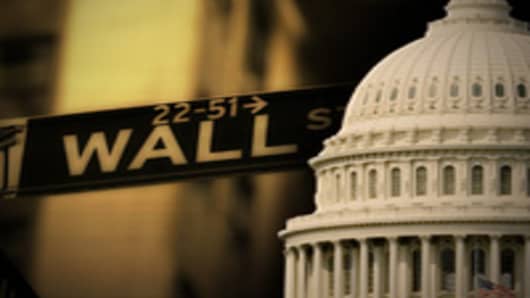I don’t imagine that too many of you would have heard of Easterhouse, a Manchester band from the 1980s that recorded some electrifying songs with a strong political content on the (also Manchester-based) Rough Trade label. They were never on Top of the Pops or MTV. I saw them live a couple of times, let's put it down to the misplaced enthusiasm of youth.
One of their song lyrics, about the old Soviet bloc, went like this:
You cant get Levi’s jeans, or pictures of James Dean, But these things I have seen, they don’t mean that much to me.
To a 19-year old these are practically noble sentiments! But to one slightly less callow, it is evident that they miss the point. The issue isn’t that one necessarily cares or doesn’t care for Levi’s clothing or repeat performances of Rebel Without A Cause, but rather that if one does happen to, then the economic model in place has made it possible to indulge one’s tastes.
This is the ultimate rationale for persisting with the free market approach. It results in the provision of choice to the consumer, and as long as the consumer has the freedom to opt for the product he/she desires most, then the model will produce goods and services that people actually want to purchase and consume.
This is a long preamble to highlight two seemingly unrelated issues. In the USA the implementation of “Obamacare” has resulted in a passionate debate that drags in the free market principle, on the grounds that one should have the freedom of choice to decide whether or not to take up some form of health insurance. In Europe there are calls to set up a state-owned bank to assist with economic recovery, as observed in Asia where public-sector banks are much more common.
But freedom of choice can only go so far. I am not free to embark on any action I wish, otherwise the result would be anarchy, or more accurately the law of the jungle. If one doesn’t make a distinction between freedom of choice in economic matters as opposed to social matters, there is a danger of confusing the debate.
This isn’t a social policy column, thankfully, so we wont comment on the healthcare debate, but there is a good reason why a public-sector funded bank isn’t necessarily the way to kick-start growth in the SME sector(and why the banks in countries like China and India with the highest percentage of non-performing loans are the state-owned ones): as soon as one skews the participation choice away from what classical economists call “enlightened self-interest”, one ends up producing not necessarily what consumers are prepared to pay for.
The decision to originate a loan to a company must surely reflect the future prospects of that company, which in turn are influenced by the attraction of that company’s products or services to its customers.
If it is influenced by non-market factors, the distortions that arise produce either the wrong product, or not enough of the product, or none of the right product! And that was what we observed in the Soviet bloc. If the decision to lend is based on anything other than sound financial and future prospect reasons, rather than kick-start the corporate sector we risk creating zombie firms that come back to haunt us later.
Putting in place an ability to produce the right product is half the battle. Then it's down to more subtle issues like productivity and competitiveness.
_________________________
The author is Professor Moorad Choudhry, Treasurer, Corporate Banking Division, Royal Bank of Scotland. The views expressed in this article are an expression of the author’s personal views only and do not necessarily reflect the views or policies of The Royal Bank of Scotland Group plc, its subsidiaries or affiliated companies, or its Board of Directors. RBS does not guarantee the accuracy of the data included in this article and accepts no responsibility for any consequence of their use. This article does not constitute an offer or a solicitation of an offer with respect to any particular investment.


